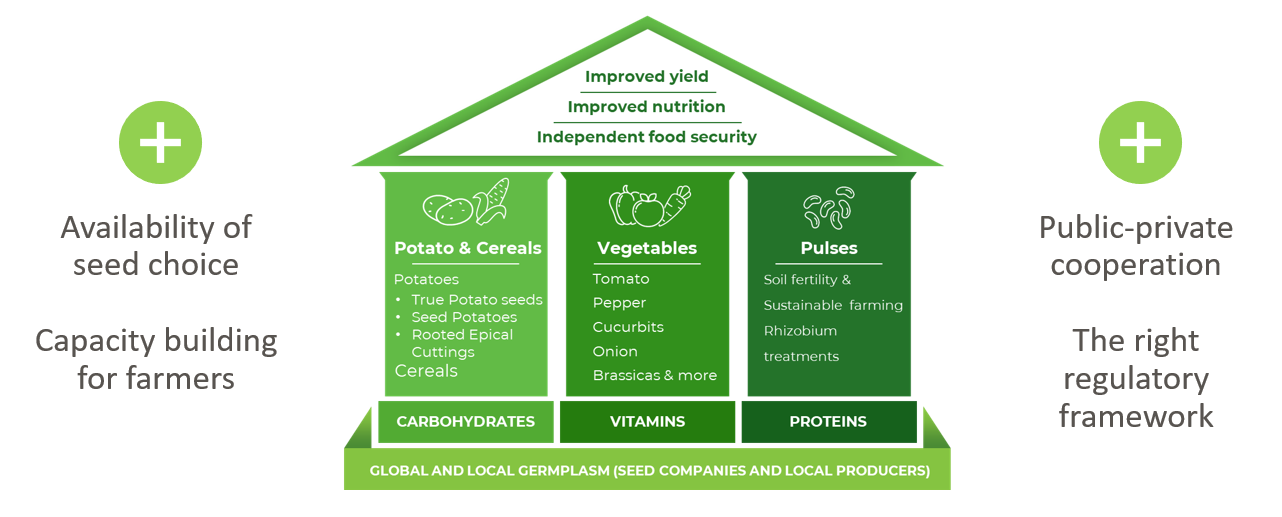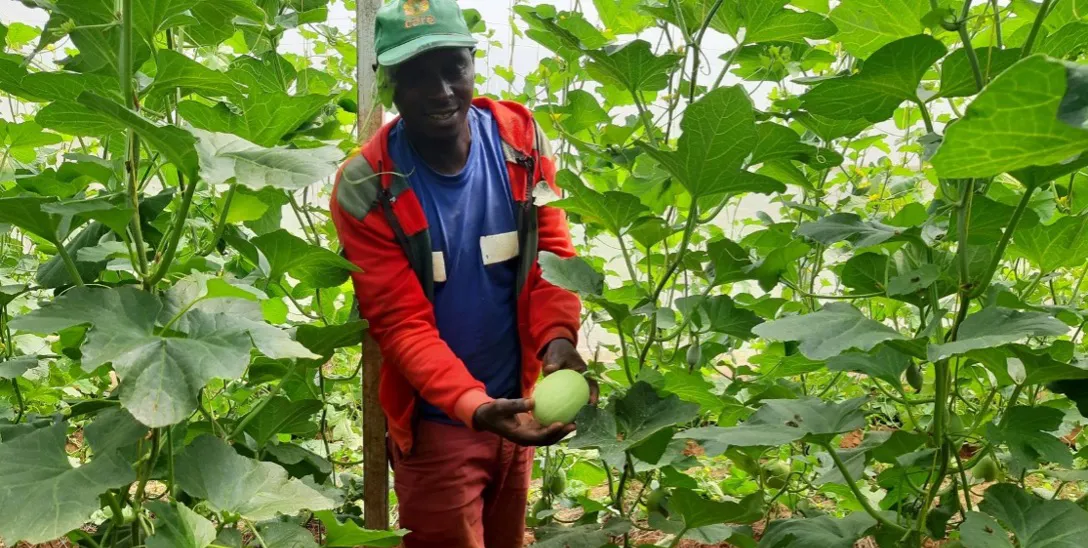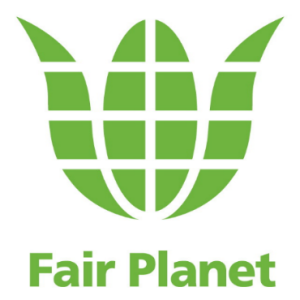Hot Topics
Objectives
The Seed Resilience project aims to facilitate access to high-quality seeds, together with training on Good Agricultural Practices (GAP). Access to improved varieties will allow farmers to produce and sell significantly higher yields with better produce quality.
Improved varieties often remain out of reach to most farmers in Africa. By establishing a seed supply chain in Rwanda, we are working to strengthen the private sector’s contribution to empowering farmers, especially smallholders, and enhancing their seed choice.
By establishing a seed supply chain in Rwanda, we aim to strengthen the private sector’s role in empowering farmers—particularly smallholders—and expanding their seed choices. The Seed Resilience Project, led by the International Seed Federation (ISF) in partnership with Fair Planet and the Rwandan Agricultural Board (RAB), seeks to provide 84,000 Rwandan farmers with access to quality seeds, as well as the knowledge and skills to implement Good Agricultural Practices (GAP).
The project follows a three-step approach:
- First, trials are conducted using varieties from local and global seed companies, as well as international research institutes, to identify those best suited for the Rwandan context.
- Second, 100 demonstration plots are set up across the country, where farmers can learn about these varieties and develop horticultural skills.
- Finally, local and global value chains are strengthened to ensure farmers can access their preferred varieties. Currently, the Seed Resilience Project focuses on vegetables, but in the future, it may expand to other crops such as beans and potatoes.
The project will address three food and nutrition pillars: fresh vegetables for vitamins and fibres, pulses for proteins and soil fertility improvement, and cereals and potatoes for carbohydrates.

An inclusive approach
ISF is working hand in hand with Fair Planet, a non-profit organization with proven and successful experience in working with multiple seed partners in Africa for the benefit of smallholder farmers. We are also coordinating closely with the Rwanda Agriculture and Animal Resources Development Board (RAB).
With this initiative, we aim to contribute to building inclusive seed systems by engaging with national and international organizations, farmers, public and private actors, NGOs and civil society.

Get involved!
Take part in enabling smallholder farmers to transform their daily work into a sustainable, profitable source of income. Providing access to improved varieties to farmers offers them the opportunity to:
- Increase crop productivity and income
- Increase their capacity to improve local food and nutrition security
- Improve farm management knowledge
BECOME A PARTNER. You can test your varieties locally and support the project’s budget.
BECOME A SPONSOR. You can support the project financially.
OTHERS. Got other ideas? We look forward to hearing it.
To know more about this project and find out how you can be a partner, contact Dr Alon Haberfeld.
You can also read about it in Fair Planet’s 2023 highlights report.

2025 Milestones
- 6 March 2025 – As part of the African Seed Trade Association (AFSTA) Congress 2025, ISF and Fair Planet hosted a field visit for delegates to the Horticulture Center of Excellence (HCoE) in Kigali, Rwanda. Visitors toured the open field and greenhouse trials, which include currently available market varieties from six global seed companies considering market entry in Rwanda. Additionally, open-source tomato and hot pepper genetics from the World Vegetable Center are being tested, offering potential opportunities for companies to introduce these varieties to the market or integrate them into their breeding programs.
All photos can be found on Flickr.
2024 Milestones
All photos can be found on Flickr.
May 2024 – Panel discussion at the ISF World Seed Congress 2024 in Rotterdam
August 2024 – Open field trials and visit to MINAGRI
2023 Milestones
July 2021 – During the UN Food Systems Summit 2021, ISF launched four key initiatives to advance seed resilience to contribute to the 2030 Sustainable Development Agenda. One of the initiatives was to build a flagship project with partners for a sustainable seed system based on inclusiveness in a country.
February 2023 – ISF and Fair Planet signed a Memorandum of Understanding. Meeting with representatives of the Rwandan Ministry of Agriculture and Animal Resources (MINAGRI), FAO, CGIAR, AGRA, Rica, Seed Association of Rwanda, and other agencies; Joint field visit
June 2023 – Engagement with the global seed industry t the ISF World Seed Congress in Cape Town, South Africa
August 2023 – First seeds sown at the Horticulture Center of Excellence (HCoE) in Kigali
September 2023 – Transplanting for the first season
November 2023 – Open field day and harvest
December 2023 – First mid-season report to donors and partners


